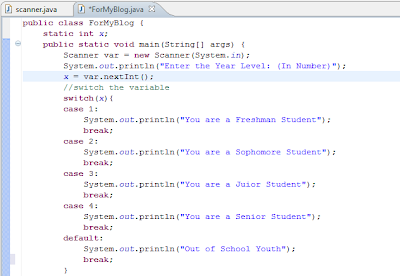Do-While Loop in Java
It will first execute a body of codes before testing for a condition. Its general equation is:
do{
statements;
}while(condition);
Where:
condition = is where the loop will stop.
You maybe find this very similar to the while loop (because I use the same problem) but as we move on you will see their differences. But for now, the obvious difference is that the while loop will test first for a condition then execute a command while do-while will execute a command first before testing for a condition. Consider this example.












